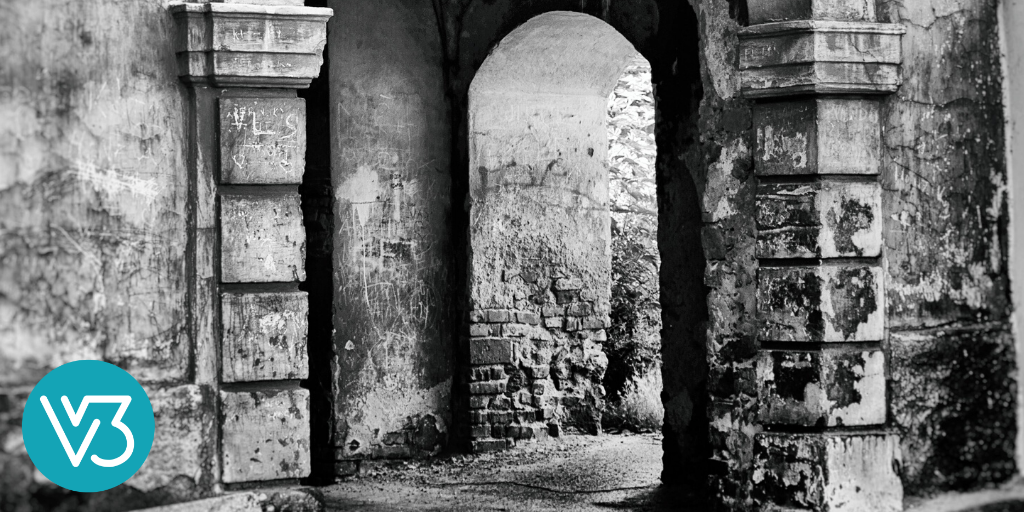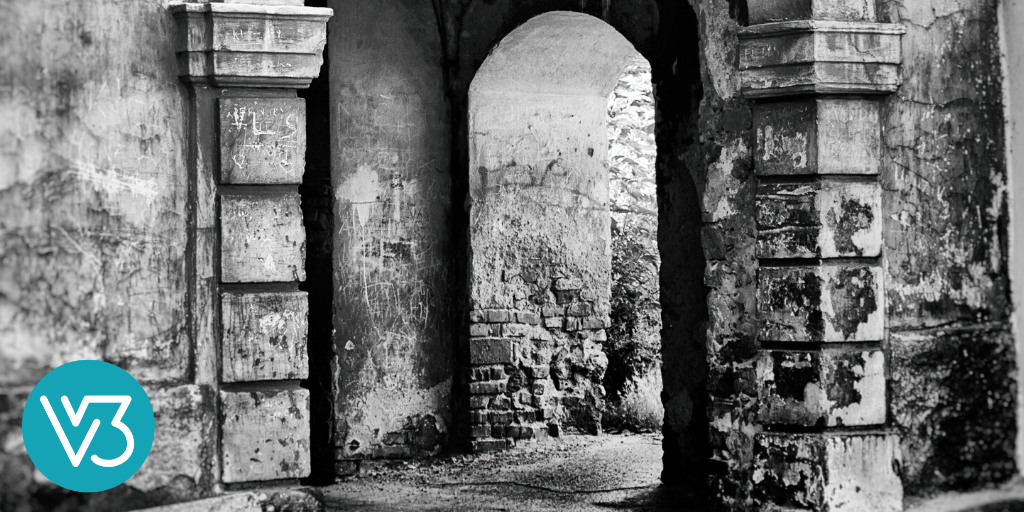The year was 250 CE and Rome found itself facing, invaded even, by a different kind of enemy. It was not an army it could simply defeat on the battlefield, but a plague that swept through parts of the empire.
Most historians think the invader was akin to Smallpox or Bubonic Plague, based on the early descriptions of symptoms. Whole households were disappearing to the ravages of the disease. Proximity was spreading illness at unprecedented rates, causing fear and panic as people saw their friends and family quickly falling ill, only to escape symptoms by death.
Plague and Panic
Bodies were left in the streets, being removed from houses so that remaining inhabitants could hopefully live in relative safety from whatever was attacking. The sick were driven out into the public areas to die a slow and painful death. It caused panic among the public, resulting in many fleeing to the countryside to escape the confines and tighter living of city neighborhoods. At one point, up to 5000 per day were falling in Rome alone. The empire was dying in epidemic proportions!
However, as many fled, there was one group of people that stayed. They cared for the sick, buried the dead, attempting to thwart the plague by burying bodies and covering them in lime, or burning bodies that had been piled in the streets. Who were these lunatics that stayed and cared for those who were dying? Who was this group that ran into the plague instead of fleeing in panic? They were known as Christians.
Love and Loyalty
These so-called Christians that lived within the Empire were found with the sick and dying, not running from them. As people suffered in the community, they responded with love, care and concern. They put their hands on the hurting and brought comfort to their suffering.
In 260 CE Dionysius wrote a tribute to their efforts saying, “Most of our brother Christians showed unbounded love and loyalty, never sparing themselves and only thinking of one another. Heedless of danger, they took charge of the sick, attending to their every need and ministering to them in Christ…”
These anomalies of common sense stayed to care for the wholeness of the community, dealing with the ravages of death and infection rather than running to the hills in search of safety. The Christians lived in search of love and in search of a response that looked like Jesus’ life. A life where love triumphed danger and where the values of the kingdom of God overruled the safety of one’s life.
These values resulted in a bravery that was not witnessed in the rest of the community or in the civic rulers. Only the Christians were brave enough to love, in spite of the dangers.
A Growing Faith
Most historians reflect on this era of Roman history as a critical time in Christian history as well. This response of the Christian community is often cited as one reason that this faith in Jesus grew among the population. Even pagan observers noticed a constant charity and love for others. During these times of plague and great need in Roman history, Christians were observed to be standing in the gap where the empire failed to bring wholeness.
The emperor Julian complained in a letter to his pagan priest in Galatia that the virtues and responses of the Christians were out matching their own citizens. He observed that recent Christian growth was partly due to, “benevolence toward strangers and care for the graves of the dead.” He goes on to say, “The impious Galileans support not only their poor, but ours as well, everyone can see that they lack aid from us.”
Curious Values
The early church, as it lived in Rome, gained notice as a community that lived under a different set of values that were based on love and care for neighbor. They brought human care to situations in ways that other philosophies and belief systems did not, and so people were drawn to it. They were drawn to a community that cared for them in spite of their outsidedness and differences in beliefs. And so, the Romans noticed this strange band of brave people that were connected by a Galilean named Jesus. They noticed these oddities because they lived by virtue of a particular verb…love.
Learning from a Brave Past
What would we consider the plagues of today? What analogies might we draw to those epidemics in our culture that bring divisiveness, fracture of community and absence of humanity?
And, how do we, Christians, respond to these plagues today? Do we run into the danger, overcome the fear, brandishing our greatest weapon of death, love of neighbor? Often, I think we find ourselves running from the challenges of loving those that live in the margins of culture, defined by an uncomfortable social identity or belief system. We must self-assess and ask if we actually run from the plagues today, instead of answering the call like the early church, and loving people to a point where our differences become secondary to our primary identity as images of God.
Rediscovering Brave Love
My contention is that the church in general has lost her bravery, or at the least, has now mis-defined the concept of what bravery looks like in Christian faith. While there are certainly pockets of brave love that exist in the ranks of western Christianity today, by in large, the public witnesses a church that loves based on beliefs, creates community with others based on behaviors, and neighbors others only when it’s safe.
And so…How does the church become brave again?
Those reading this likely share some common language: missional, incarnational, presence, place-making, shalom, etc…
If that’s your native tongue, then I’m assuming you and I share a common interest, it’s the theological mission of seeing the reign of God through Jesus Christ revealed to others. However, for us to do that, we must take that big theological thought and boil it down to a starting point, our own bravery.
The mission of seeing the reign of God through Jesus Christ revealed to others boils down to our own bravery. ~ Rowland Smith Click To TweetAre we brave enough to step outside of our comfort zone to engage a culture that needs the hope of a better kingdom? Are we brave enough to begin with love and care for our world, our city, and our neighbor, before being correct theologically? Can we live as a person of Christ in the manner that Jesus exampled? Can we hold our judgmental critiques of behavior for a time so that we don’t break down the potential of long-term relationships? Are we brave enough to run into the plague instead of seeking the safety of our church walls and Sunday services?
I know, these questions cause some tensions, and they may sound critical. They demand some paradigm shifts in thinking. But I’m not asking you to change your theology or doctrine on salvation. We’re not questioning the truth of who Jesus is, the cross, or his atoning work on our behalf.
A Mission of Rebuilding
What I hope questions like these eventually lead to is a reconstruction, a rebuilding of the missional nature we all inherited when we became children of God. The moment we decided to follow Jesus, he invited us into a grand story, a mega-narrative that brings hope and salvation to the world. Tampa Underground (www.tampaunderground.com) defines a church as, “A worshipping community on mission.” We know how to carry out the first part of that sentence all too well. Might we remind ourselves of the last part of that sentence and re-embrace our missional calling, that mission being to love our neighbor as we love our Lord.
As church planters and front-line kingdom agents I invite you, as I remind myself, to hold onto that bigger story, one where God invites us to join him in displaying what the kingdom is supposed to look like. You might have to put down some traditions, wrestle with some routines, question some ways of doing things, but as we run into the plagues of culture and society today, people will notice a different church, a different people of God than what they’re used to seeing. Hopefully, in our lack of judgement and behavior management, they will notice Jesus, and after all, isn’t He supposed to be the hero of the brave story we’re telling?

Share this Post

